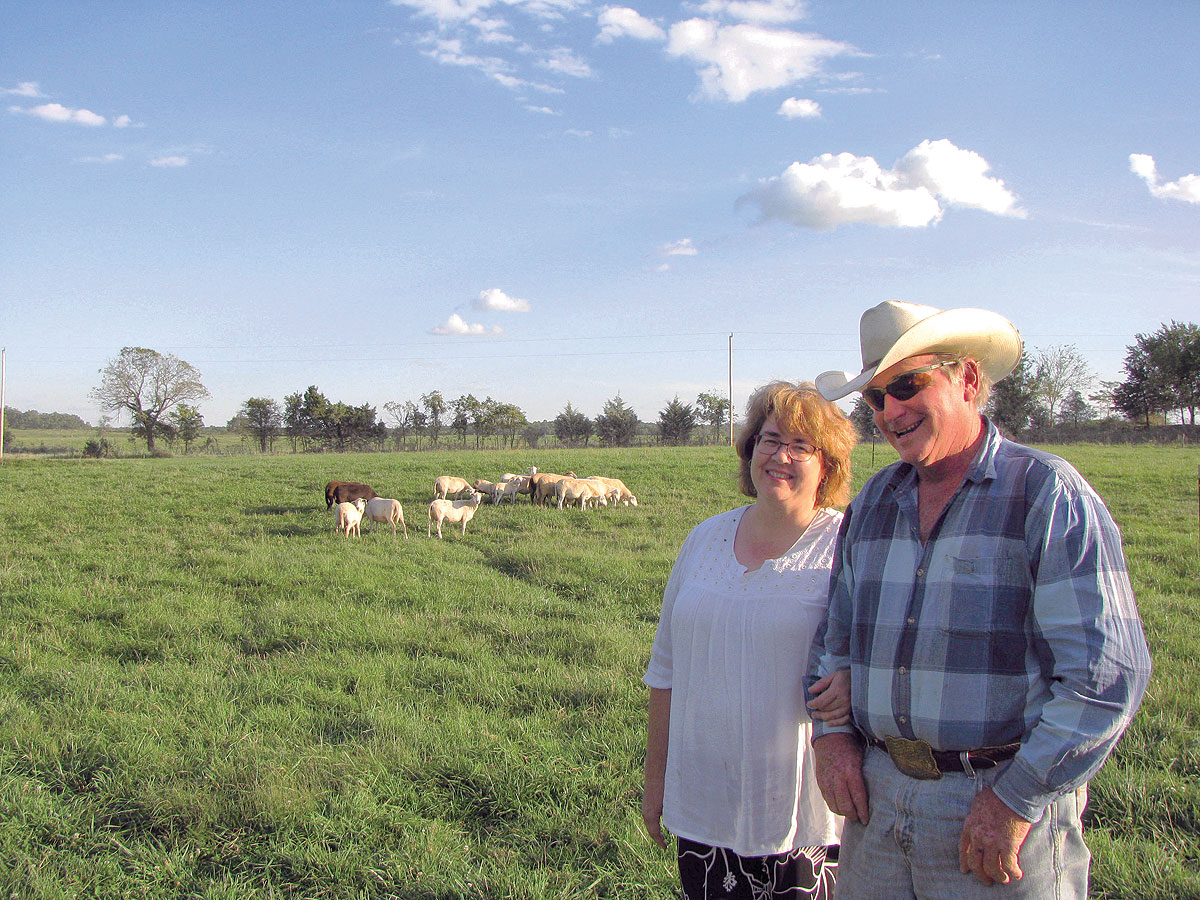
The training of a stock dog introduced the Hydes to sheep production
Jeff and Tina Hyde got into the sheep business quite by accident. Jeff has always had cattle, owning his first cow when he was 8 or 10 years old. Tina admits she is a city girl.
Together they raise cattle, and now sheep, on their 320-acre farm in Laclede County, near Phillipsburg, Mo.
Jeff first rented the farm in 1980 and bought it in 1987. They have about 90 cows, some horses and a few chickens. At one time, he had hogs. That is the area he now uses to raise sheep. He said, “We got lucky; already having fence.”
Explaining his accidental sheep venture, Jeff said, “I sent a Border Collie to a guy at Belle, Mo., to be trained and when I went there to watch my dog work, he trained them on sheep. I thought I ought to get some of them. He told me to bring my trailer when I came to get my dog, so I did. Four sheep turned into 44 this summer, but we’re down now because we sold the lambs.”
Jeff and Tina have been raising sheep for seven years now on 3 acres of their farm.
“So little a piece of land can bring such a big profit,” Tina said.
They raise Katahdin sheep and have a few Barbados. Jeff said that Tina likes the Barbados.
“They are the breed that if you get the rams, some grow big horns,” Jeff said. “If you get some old ones, they still bring quite a bit of money at the sale.”
They have Katahdin sheep because they didn’t want the wool sheep. “I don’t want to shear them. I did breed my ewes to a wool ram this year,” Jeff said. “I just did it for about three weeks to a month, then I took him out and put the hair ram in because I didn’t know what I was in for. I don’t want to keep the rams to breed with because I don’t want to mess with wool. But there is money in those sheep.”
Jeff said the sheep are a hobby, but added, “I don’t want them to be. I think I can make a little more money if I expand, and I want to expand. It started out as an accident, but it’s turned into something.”
Jeff said he got out of the hog business before the market crashed several years ago, and he hopes the sheep market doesn’t do the same.
“I remember people saying, ‘I’ve got two sows and I made ‘that’ kind of money on two, what would I do if I had 20?’ Well, it doesn’t work that way. I wonder if it’s going to work that way with sheep, but I’m wanting to try. I’d like to get up to 20 to 50, but that’s going to take a little more.”
Currently he has 16 ewes.
“I am going to try to expand up to 25 this winter,” he said. “I’m going to buy some ewes to breed because a lot of them were wool and hair cross and I didn’t want to keep them. We had 29 lambs on 16 ewes. I sold 27 recently. They always tell me if you get 1.5 per ewe, you’ve made good money. This is by far the best year I’ve ever had. I’ve never had a year like this.”
When he began his sheep operation, Jeff said he wasn’t getting many sets of twins, like other producers often do, but he soon learned management is key.
“Everybody said you’re supposed to get twins,” Jeff stated, adding that said someone asked if he “flushed” his females. He didn’t know what that meant, but soon learned you have to feed them really good a week or two before you breed them and then just after.
“So I did that. Next thing you know we’ve got more triplets than we got twins. It just works,” Jeff said.
Jeff works for Pro Gas Propane in Conway, Mo., and Tina teaches art at Marshfield Schools.
While he will always be a cattle farmer, they both enjoy raising sheep.






